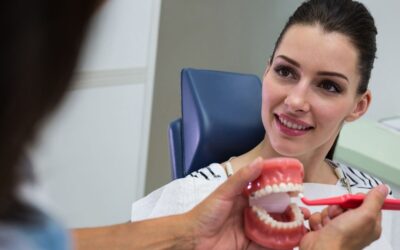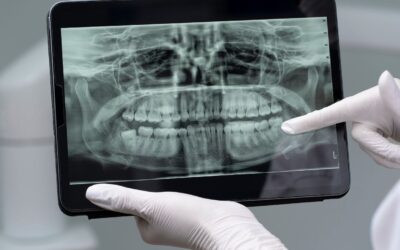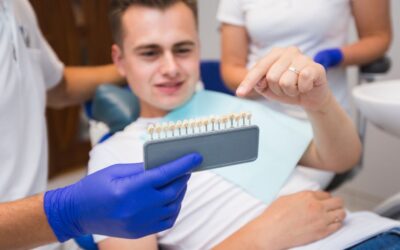After wisdom teeth removal, many patients experience the frustrating problem of accidentally biting their cheek. This can cause discomfort, pain, and slow the healing process. It’s a common occurrence, especially in the days following the surgery. The combination of swelling, numbness from anesthesia, and altered jaw alignment can make it difficult to control your mouth movements. Luckily, there are several strategies you can use to stop biting your cheek, promote healing, and improve your comfort during the recovery process. In this guide, we’ll explore everything you need to know about how to stop biting your cheek after wisdom teeth removal, including effective tips, remedies, and strategies to help you avoid this painful problem.
Why Do You Bite Your Cheek After Wisdom Teeth Removal?
Understanding the reasons behind accidental cheek biting is essential to prevent it. After wisdom teeth removal, several factors contribute to the increased risk of cheek biting:
-
Swelling and Discomfort: After surgery, the jaw area becomes swollen and tender, which makes it difficult to control the movements of the mouth. Swelling can shift the position of your teeth, which increases the chances of biting your cheek without realizing it.
-
Numbness from Anesthesia: The local anesthesia administered during the procedure numbs the gums, teeth, and surrounding tissues. While this is effective for pain management during the procedure, the numbness can continue for hours or even days afterward. Without full sensation in the mouth, you may not be able to feel when you’re accidentally biting your cheek.
-
Jaw Misalignment: When wisdom teeth are removed, the alignment of your jaw can temporarily change due to swelling, bone gaps, or changes in the way your teeth fit together. This misalignment can cause the upper and lower jaws to come together in an unusual way, leading to more frequent accidental cheek bites.
Tips to Prevent Biting Your Cheek After Wisdom Teeth Removal
There are several strategies that can help reduce the likelihood of biting your cheek while you heal from wisdom teeth removal. Implementing these methods will ensure a smoother recovery process and prevent unnecessary discomfort.
1. Use a Soft Diet
-
Avoid Hard and Crunchy Foods: After wisdom teeth removal, it’s essential to stick to a soft diet for at least a few weeks. Foods like mashed potatoes, soups, smoothies, and yogurt are easy to chew and won’t put undue strain on your jaw. Crunchy and tough foods, such as raw vegetables, nuts, and hard meats, can force your jaw into an awkward position, increasing the risk of cheek biting.
2. Apply Cold Compresses
-
Reduce Swelling and Numbness: A cold compress can help reduce the swelling in the jaw and surrounding tissues. Apply a cold compress to your face for 15–20 minutes at a time. This will help numb the pain and minimize the discomfort that could contribute to unconscious cheek biting.
-
Better Jaw Alignment: Swelling can also distort the alignment of your mouth and teeth. By applying ice, you’ll reduce swelling, which in turn helps to realign your bite and minimize the risk of accidentally biting your cheek.
3. Keep Your Mouth Moisturized
-
Use Lip Balm and Saline Rinses: Dryness in the mouth can lead to discomfort and a greater likelihood of cheek biting. Dry skin can make the mouth feel tight and uncomfortable, leading to involuntary movements like biting the inside of your cheek. Use lip balm or saline rinses to keep your mouth and lips hydrated. This will ensure a more comfortable recovery.
4. Be Mindful of Your Chewing Movements
-
Slow Down and Take Small Bites: After wisdom teeth removal, chewing can be tricky. Slow down and take smaller bites when eating. This will help you control your jaw movements better, reducing the risk of accidental cheek biting. It’s also essential to chew on the opposite side of the mouth if you have discomfort or swelling on one side. By taking smaller bites and chewing carefully, you can minimize the chances of injury to your cheek.
How Long Will It Take for the Cheek Biting to Stop?
One of the most common concerns after wisdom teeth removal is how long it will take for the cheek biting to subside. The length of time varies depending on several factors, including how well you manage post-operative care and the extent of your recovery. Here’s a rough timeline of what to expect:
First Few Days:
The first few days after the procedure are typically when cheek biting occurs the most. Anesthesia, swelling, and pain can impair your ability to feel and control your mouth, leading to more frequent cheek bites. During this time, you’ll also experience some discomfort, which may worsen the tendency to bite your cheek accidentally.
1-2 Weeks:
By the end of the first week or two, most of the swelling will have gone down. The numbness should wear off, and you’ll start regaining better control over your mouth movements. At this point, cheek biting should become less frequent. However, it’s still important to follow a soft diet and continue with your post-surgery care to prevent further injuries.
3-4 Weeks:
By the end of the first month, the discomfort and swelling should be significantly reduced. The tissues in your mouth will have healed enough that you can begin eating normal foods again without risking further cheek injury. Most people find that they no longer bite their cheek by this point, but if it persists, consult your dentist for further guidance.
Using Oral Devices to Prevent Cheek Biting
If you’re still struggling with cheek biting, there are a few oral devices that may help. These devices can act as a barrier to protect your cheek from accidental bites and allow the affected area to heal properly.
1. Dental Guards
-
Custom-Made Protective Barrier: A dental guard is a protective device that fits over your teeth and gums. It acts as a barrier between your teeth and the inside of your cheek, preventing direct contact and reducing the risk of bites. A dental guard can be especially useful while you sleep or if you find yourself unconsciously biting your cheek during the day.
-
Mouthguards are often recommended for patients who have severe discomfort or persistent issues with cheek biting.
2. Orthodontic Wax
-
Temporary Cushion for Relief: If you have any sharp edges on your teeth after wisdom teeth removal, orthodontic wax can be used to cover those edges temporarily. The wax will cushion the inside of your cheek from the sharp surfaces, preventing further injury and providing some relief during the healing process.
Importance of Good Oral Hygiene During Recovery
Maintaining good oral hygiene after wisdom teeth removal is crucial to avoid infections and support the healing process. A clean mouth is less likely to develop complications, and keeping the surgical area free from food particles can prevent additional discomfort.
-
Gentle Brushing: After surgery, brush your teeth gently with a soft-bristled toothbrush. Avoid brushing directly over the extraction site until it’s fully healed, as this can irritate the area.
-
Rinse with Salt Water: Rinsing with a warm saline solution is an excellent way to promote healing while keeping your mouth clean. Salt water helps reduce inflammation, prevent infection, and keep the surgical sites clean without causing irritation.
Managing Pain and Swelling Effectively
Pain and swelling are common after wisdom teeth removal. Managing these symptoms properly will improve your comfort and reduce the chances of cheek biting.
1. Over-the-Counter Pain Relief
-
Pain Management: Taking over-the-counter pain relievers such as ibuprofen can help manage discomfort. These medications also reduce inflammation, which can help ease swelling and make it easier to control jaw movements.
2. Keep Your Head Elevated
-
Reduce Swelling: Swelling in the jaw area can make cheek biting more likely. Elevating your head while resting can help reduce this swelling. Prop yourself up with pillows when lying down or sleeping to keep your head raised.
Frequently Asked Questions (FAQs):
1. How long does it take to stop biting your cheek after wisdom teeth removal?
It typically takes anywhere from a few days to a few weeks for the cheek biting to subside, as swelling decreases and sensation returns.
2. Is cheek biting normal after wisdom teeth removal?
Yes, it is common in the days following surgery, especially due to anesthesia, swelling, and jaw misalignment.
3. Can a dental guard help with cheek biting?
Yes, dental guards act as a barrier and can help protect the inside of your cheek from accidental bites.
4. What foods should I avoid to reduce cheek biting?
Avoid hard, crunchy, or sticky foods, as they can lead to awkward jaw movements that increase the risk of biting your cheek.
5. Should I consult my dentist if I keep biting my cheek?
If cheek biting persists or worsens, it’s a good idea to consult your dentist to ensure there are no complications or underlying issues.
Conclusion:
Cheek biting after wisdom teeth removal is a common and frustrating problem, but with the right care and attention, it can be managed effectively. By following a soft diet, reducing swelling, and using oral devices like dental guards, you can improve your comfort and prevent further cheek injuries. Most importantly, the issue should subside as you heal, but if it persists or worsens, consulting your dentist is important to ensure there are no complications. By taking the steps outlined in this guide, you’ll be on your way to a smooth recovery and a pain-free mouth.



